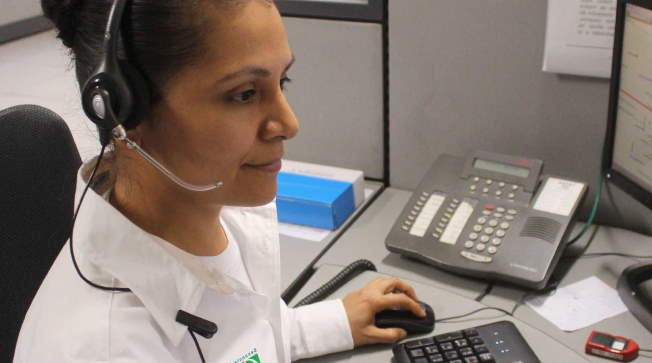
Because of how they can be installed seamlessly into virtually any kitchen without taking up any additional space, undercounter refrigerator are often a top choice for homeowners.
However, while Sub-Zero refrigerators are known for being extremely reliable, it’s not uncommon to occasionally run into issues, especially as your appliance ages over the course of the years.
With that in mind, below, we’ll go over a few simple troubleshooting steps that can help you diagnose your problem and get your unit back up and running again!
Whether we’re talking about a refrigerator that’s either too warm or too cold, it’s equally frustrating. However, temperature issues are typically easily resolved.

If you notice that your refrigerator isn’t cooling as efficiently as it once did, it might be caused by a faulty or malfunctioning evaporator fan motor. To check this, open your fridge door and listen to see if you can hear the fan running. This fan is responsible for circulating cool air throughout the unit. However, it’s not uncommon for the fan motor to wear out and breakdown over time.

In some cases, your unit’s thermostat may be faulty, which could be the source of your problem. However, before you start taking things apart to try and diagnose this, first check that the thermostat is, in fact, set to the correct temperature. In many cases, the thermostat may be changed accidentally, which could be why your fridge is either too warm or too cold.

Next, a refrigerator that isn’t cooling properly may result from a faulty compressor start relay. The start relay is the component that tells the compressor when it needs to starter working and when to turn itself off. If your start relay is bad, you’ll often hear a clicking or ticking noise while your compressor is running. However, to diagnose and resolve this issue, you’ll need to take some of your unit’s components apart. So if you’re unsure how to do this, don’t hesitate to contact a professional appliance technician today.
With many years of experience, we know exactly what causes your appliance to work improperly. Call us today to set up an appointment and get professional help!

22457 E Ottawa Dr, Suite 1436, Aurora CO
(833) 703-0375
12036 East Hoye Dr Aurora, CO 80012 (720) 730-7202
5200 S Ulster St, #1220,
Greenwood Village, CO 80111
(720) 713-7515
Whether you've got an oven, stove, fridge, or freezers that are on the fritz, always remember that Denver's best is only a quick call away. We service all makes and models of major appliances, such as Sub-Zero, Wolf, Viking, Frigidaire, Kitchenaid, and more! So whether you're looking for parts, installations, maintenance, or need repairs, don't hesitate to contact us today!
There’s nothing worse than when you hear your appliance making unusually loud noises. Unfortunately, many internal components might be malfunctioning and causing this issue. The two most common are damaged or broken fan blades or a malfunctioning compressor.

Start by unplugging your unit, and, if possible, locate your evaporator fan to check to see if you can see any visible signs of damage and manually turn the fan blades by hand.Even if the fan blades turn, but you can feel a great deal of resistance, this likely indicates a broken bearing, which will need to be replaced before the unit will work properly.

Your unit’s compressor is the component responsible for pumping coolant through the condenser coils. When the compressor starts to malfunction or breaks, it’ll often result in the loud or unusual noise you hear.
When your unit doesn’t defrost properly, this will often result in a buildup of ice or condensation inside your unit and on your condenser coils. Both of which can easily leave you with a headache that I’m sure you’d rather live without.

Start by unplugging your unit, and, if possible, locate your evaporator fan to check to see if you can see any visible signs of damage and manually turn the fan blades by hand.Even if the fan blades turn, but you can feel a great deal of resistance, this likely indicates a broken bearing, which will need to be replaced before the unit will work properly.

Your unit’s compressor is the component responsible for pumping coolant through the condenser coils. When the compressor starts to malfunction or breaks, it’ll often result in the loud or unusual noise you hear.

If you have a gas stovetop, and you’re having trouble getting your burner to ignite, it’s not uncommon for the burner cap to have been knocked out of place during cleaning.
When this happens, it’ll prevent an adequate gas flow to the burner, which might cause an uneven flame or prevent the burner from igniting entirely.
Either way, after cleaning, always make sure to reposition your burner caps properly so that you won’t run into these minor pesky problems while putting together your holiday feast!